Make Peace With Your Ex: Kids Do Best After Divorce if Parents Get Along
Plus, which parent is likelier to get the custody time they want, other divorce and custody findings
Parents who get along well after their divorce are 53% likelier to say their kids adjusted well than parents who get along badly. Could this encourage co-parents to act civilly for the sake of the kids?
The data also shows that the parent who files for divorce is 14% likelier to get the custody time they want or more.
Custody X Change, the co-parenting app, surveyed 1,000 people who had a recent divorce involving child custody. Participants were U.S.-based.
"This data has the potential to help parents make their divorce as smooth as possible," said Ben Coltrin, Custody X Change co-founder and president.
If you're co-parenting, you may want to try Custody X Change. It helps you keep track of your schedule, calculate your parenting time and write a parenting plan. Make my schedule and plan now.
Exes who get along well have well-adjusted kids
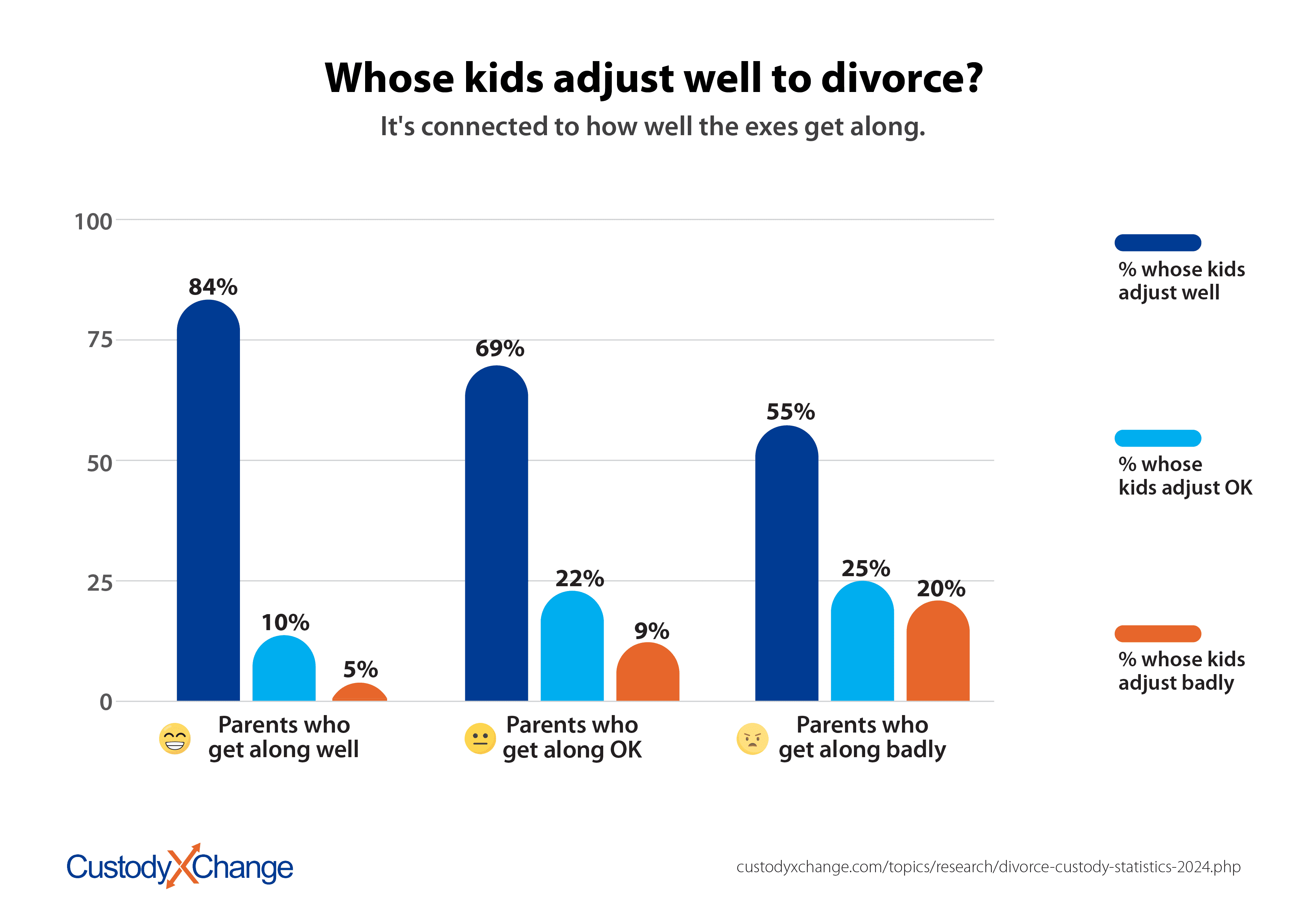
Download: PNG | JPG; Use image with attribution
Eighty-four percent of parents who reported getting along well with their ex said their children have also adjusted well. But only 55% of parents who get along badly said their children have adjusted well.
While this is a strong correlation, it does not prove cause and effect. The parents' relationship may be affecting the child's happiness, the child's happiness may be affecting the parents' relationship, and numerous other factors may be involved.
Nonetheless, Coltrin said, "We hope this motivates divorced parents to look at what could be the effects of how they treat each other and what could help their children thrive."
Divorce petitioners happier with custody schedules than respondents
Ninety-five percent of parents received a court-ordered custody schedule. Of these parents, most got at least the custody time they wanted, but this was more likely for the petitioner in the case.
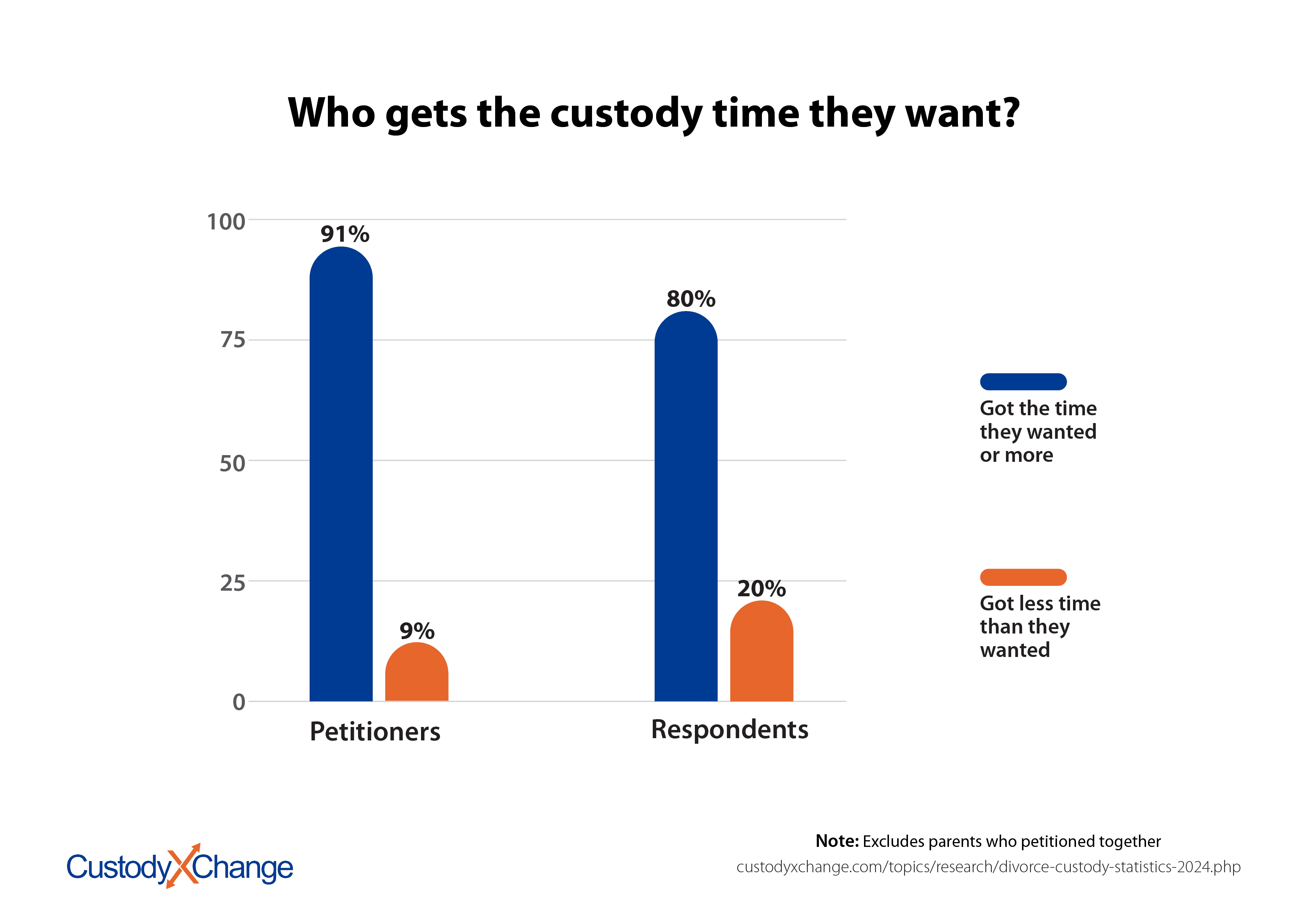
Download: PNG | JPG; Use image with attribution
The correlation between petitioning for divorce and getting the custody time desired could have numerous explanations.
For instance, there might be a court bias toward the petitioner; the parent with the stronger case might be more likely to petition; and petitioners might have more reasonable expectations overall than respondents. More research is needed to understand the contributing factors.
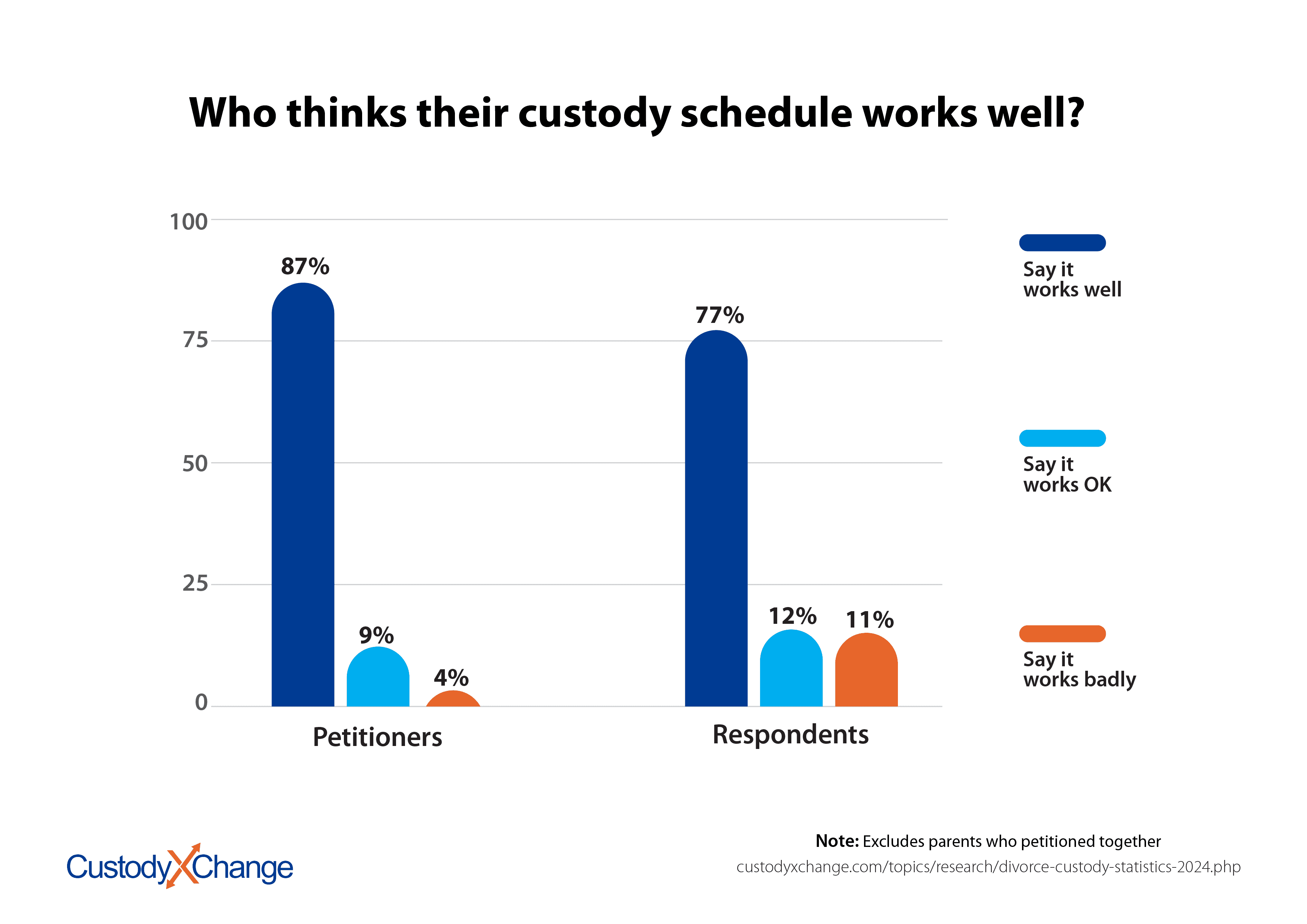
Download: PNG | JPG; Use image with attribution
The survey also found that petitioners are likelier to be happy with how the custody schedule is working. Ten percent more petitioners said their schedule is working well, and 7% fewer petitioners said it's working badly.
Might this be because they're happier with their amount of parenting time? Of parents awarded the time they wanted or more, only 3% thought the schedule was working badly. And, as explained above, petitioners had a better chance of being awarded that time.
Older children doing slightly better after divorce
Broadly speaking, older children seem to adjust to divorce slightly better than younger children.
Of children who were 0 to 8 years old at the time of the divorce, 45% have adjusted "wonderfully" or "really well." Fourteen percent more kids who were between 9 and 17 have adjusted that well.
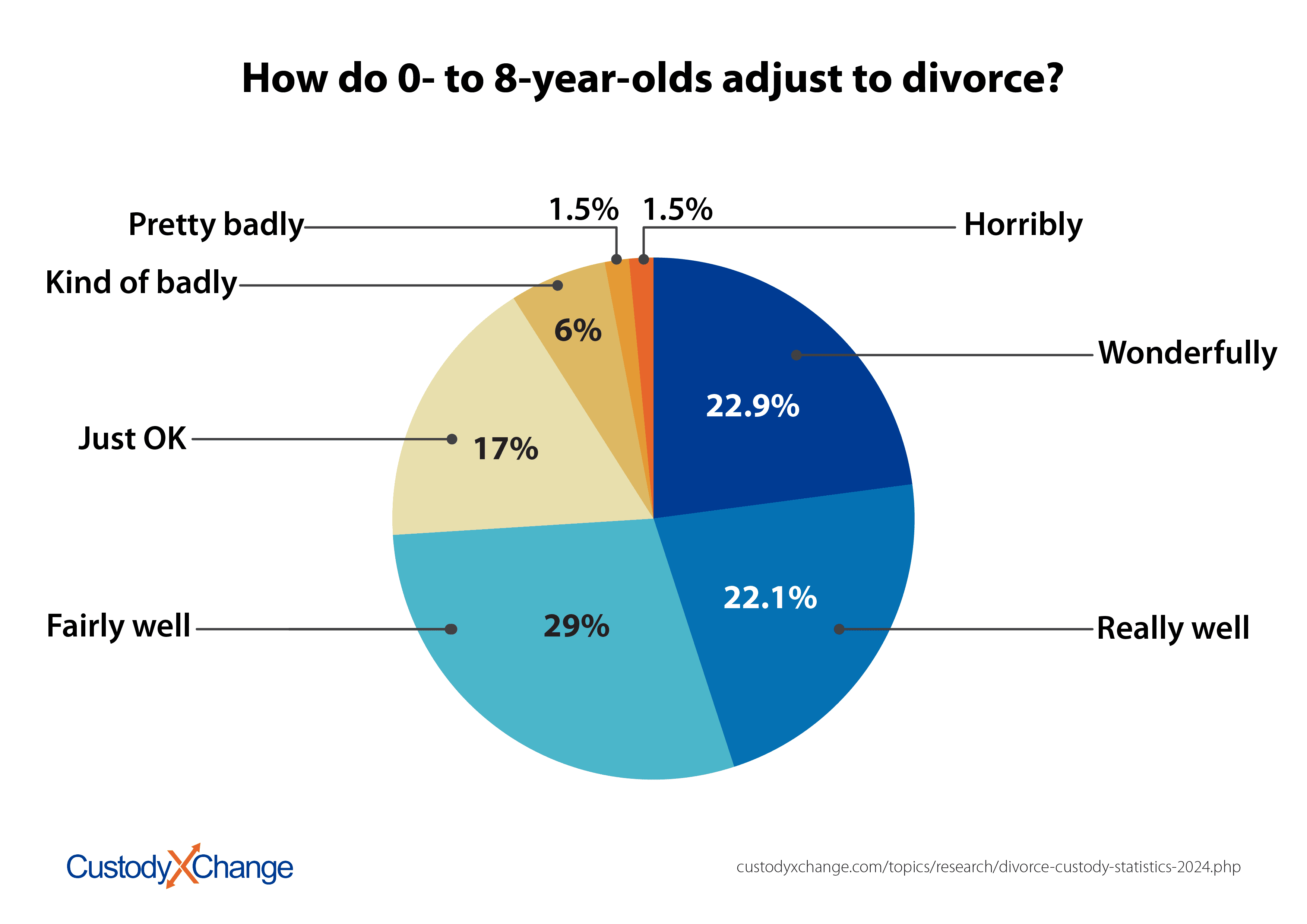
Download: PNG | JPG; Use image with attribution
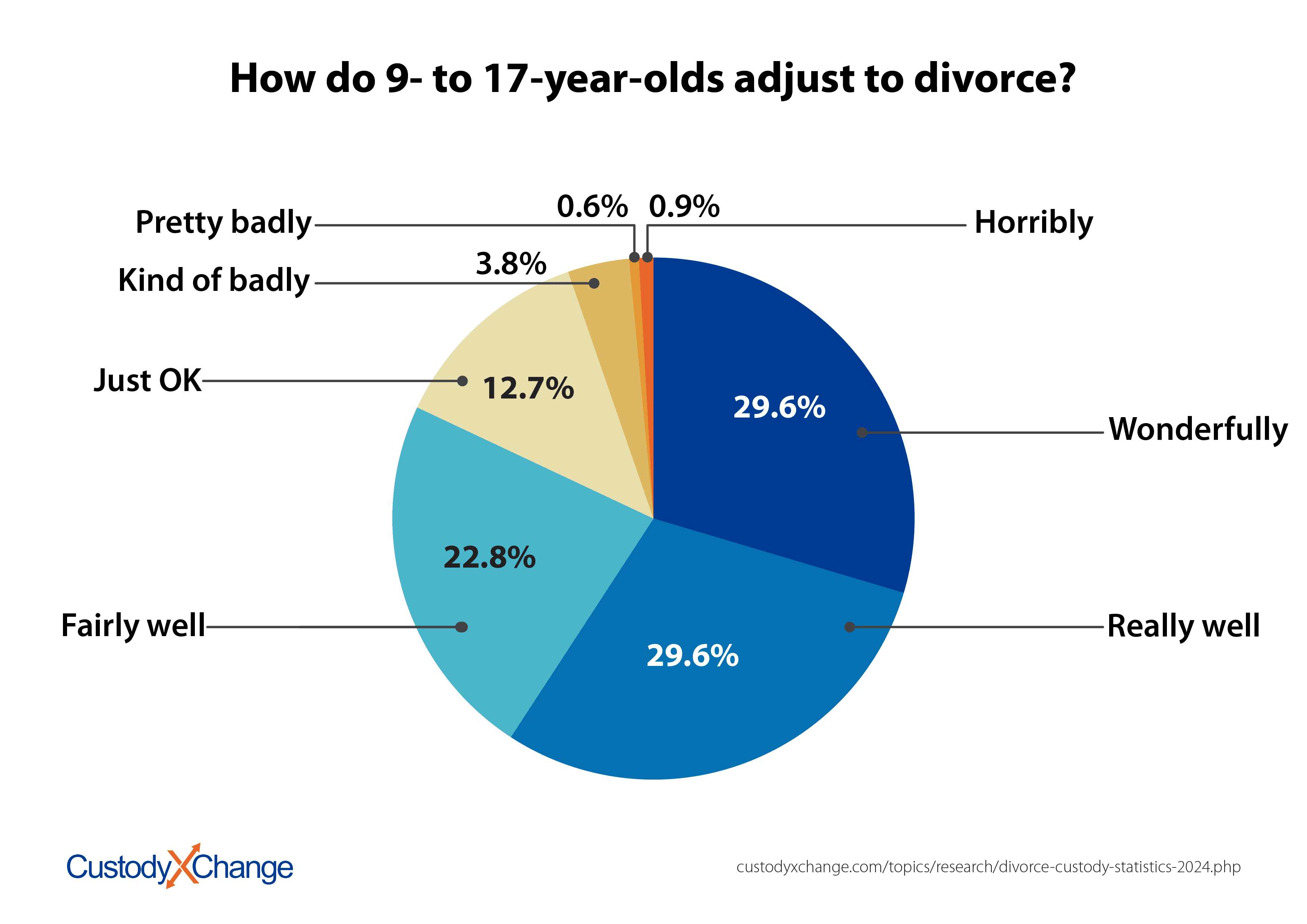
Download: PNG | JPG; Use image with attribution
However, when you look at each age individually, there is significant variation, even while the upward trend remains visible. The variation may be because a child's adjustment depends on more than just their age.
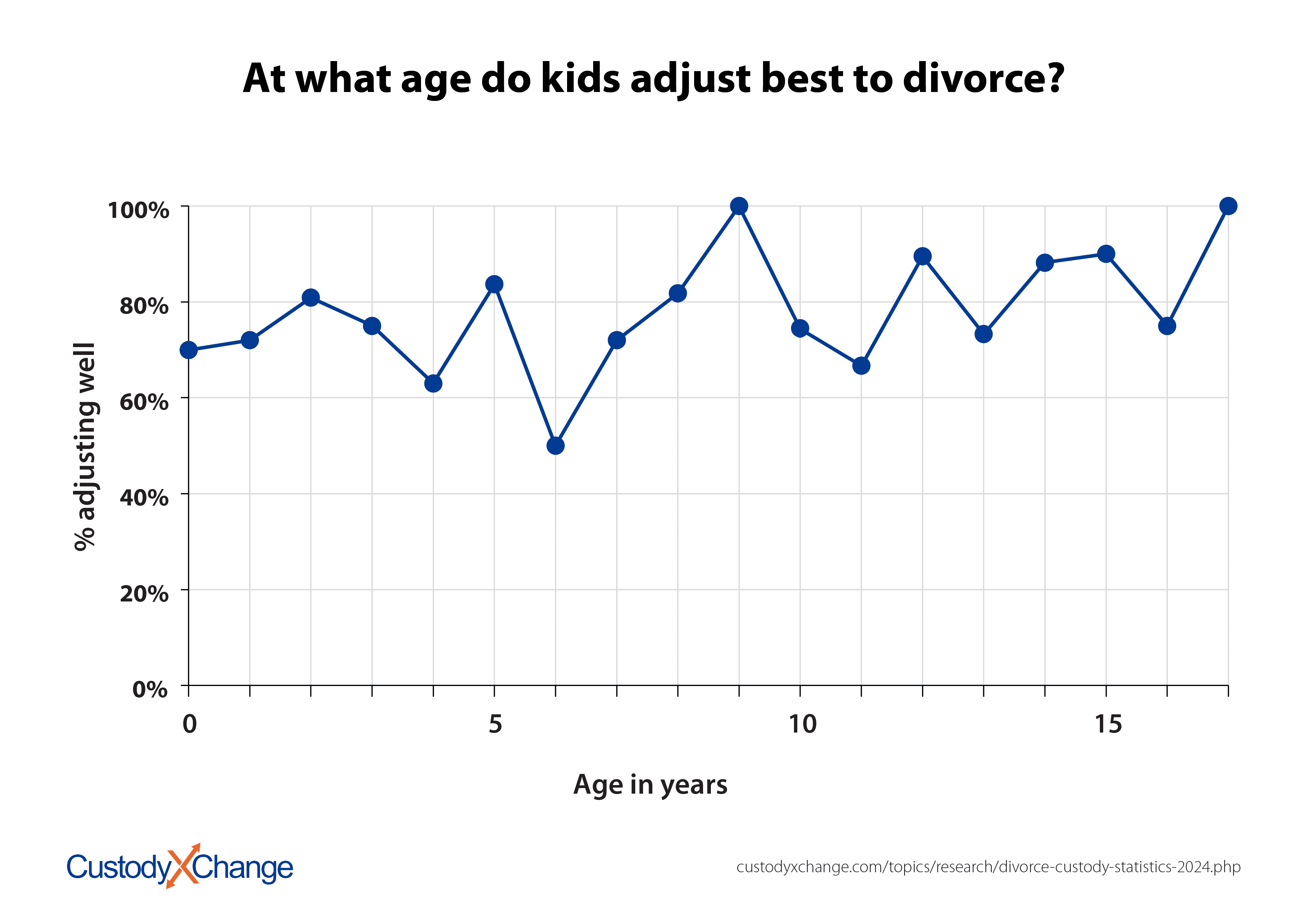
Download: PNG | JPG; Use image with attribution
Americans adjusting well after divorce with kids
Most Americans are cooperating and adjusting well after divorce with kids.
Nearly two-thirds of survey participants (61%) said they now get along well with their ex. Roughly another quarter (26%) get along OK.
Of those who remembered getting along badly when they first divorced, 60% consider their relationship improved.
About three-fourths of participants (77%) said their children are doing well after the divorce, and 15% said their kids are doing OK.
Eighty-three percent of the divorcees reported that their parenting time arrangement is working well.
"Divorce is never fun, but we were pleased to see that most families are moving on successfully," Coltrin said. "Hopefully, research like this, along with co-parenting tools, can help people adjust even better."
More survey information
The survey, conducted through the Pollfish survey platform in August 2024, had a 4% margin of error and a 95% confidence rate.
The typical survey participant was in their early 30s at the time of divorce. They had two children in their custody order, aged 6 and 11 at the time.
In the analyses above, "well" includes the responses "wonderfully," "really well" and "fairly well." "Badly" includes "horribly," "pretty badly" and "kind of badly."
Each parent gave one rating for how all of their kids adjusted. When looking at how children adjust by age (or by age range), the researchers excluded children who had siblings of a different age (or in a different age range). This allowed them to consider each age or range separately.
Download the spreadsheet of survey results.
